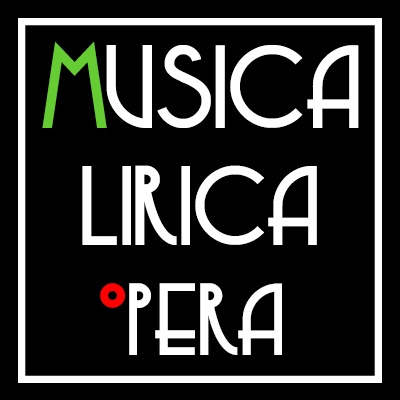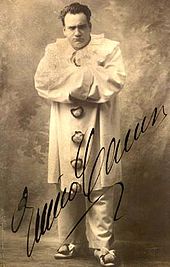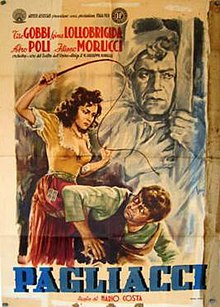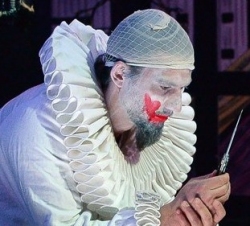Principal Players
Canio leader of the troupe playing Punchinello: Peter Bowden
Nedda his wife playing Colombine, Punchinello’s wife, in love Harlequin: Sarah Vallantine
Tonio an actor playing Colombine’s servant in the Commedia dell’arte: David Twizell
Silvio, Nedda’s lover: Sam McVaigh
Beppe (Peppe) playing Harlequin, Colombine’s lover: Daltery Wrigley
1st peasant: Les Entwistle 2nd peasant: William Huxham
Carmen Quintet: Cinzia Lanza, Jacqui Cookson, Layla Cassidy, Chris Lamb, Peter Baldwin
Cenerentola Sextet: Jacqui Cookson, Cinzia Lanza, Layla Cassidy, Peter Baldwin, Les Entwistle, Jack Piney
Chorus
1st Sopranos: Naomi Burrill Andrea Connaughton Jacqui Cookson Cinzia Lanza Joanne Noctor Corinne Owers
2nd Sopranos: Christine Dempsey Helena Metcalfe Adele Robinson Debra Smyth Helen Wright
Altos: Liz Boniface Layla Cassidy Carole Coupe Marian Frizwell Jennifer James Joan Kane Elaine McNicol Sue Sankey Jacqui Veazey
1st Tenors: Peter Baldwin William Huxham Chris Lamb
2nd Tenors: Les Entwistle Malcolm Maclean
1st Basses: John McNicol Chris Worden John Worden
2nd Basses: Kody Ketterick Jack Piney Charlie Woolhouse
Orchestra
1st Violins: Helen Andrews, Jill Jackson, John Foster, Liz Beehan, Janet Hitchen, Richard Cardwell
2nd Violins: Caroline Taylor, Caroline Morris Iliffe, Tracey Johnson, Rodger Boyes, Cath Chambers
Violas: Gill Hume, Alan Robinson, Alexander Roe, Angie Strickland
Cellos: Penny Holt, Heather Davis, Martin Darkins, Lucy Haskell
Double Basses: Tom Goulding, Sheila Johnson
Flutes: Jacqui Bennett, Jill Wooky, Stuart Girvan (piccolo)
Oboes: Yvonne Paul, Chris Irvin Brown
Clarinets: David Pennington, Alison Parsonage
Bass Clarinet: Molly McLellan
Bassoons: Roz Comer Christopher Bedford, Paul Bedford
Horns: Davie O’Shea, Harold Barnes, Jane Brooks, John Chapman
Trumpets: Chris Andrews, David Lee Ian Piggot
Trombones: Joe Greenway, Peter Woodhead, George Guyer
Harps: Maxine Molin, AnnaKate Pearson
Percussion: John Banks, Nathan Smith, Robin Stopford
Programme
Part 1
Act 1of I pagliacci by Ruggero Leoncavallo
There will be short interval
Part 2
Sextet from Act 2 of Rossini’s La cenerentola
Quintet from Act 2 of Bizet’s Carmen
Intermezzo
Act 2 of I pagliacci
Prologue
Tonio, presents himself as the Prologue and reminds the audience that actors have feelings too, and that the following show is about real people.
Act 1
The commedia dell’arte troupe enters the village to the cheering of the villagers. Canio describes the night’s performance: the troubles of Punchinello. He says the play will begin at seven o’clock. As Nedda steps down from the cart, Tonio offers his hand, but Canio pushes him aside and helps her down himself.
A villager suggests a drink at the pub. Canio and Beppe accept, but Tonio stays behind. A villager teases Canio that Tonio is planning an affair with Nedda. Canio warns everyone that while he may act the foolish husband in the play, in real life he will not tolerate other men making advances to Nedda. Shocked, the villagers ask if Canio really suspects her. He says no, and sweetly kisses her on the forehead. As the church bells ring vespers he and Beppe leave for the pub, leaving Nedda alone.
Nedda is frightened by Canio’s vehemence, but the birdsong comforts her. Tonio returns and confesses his love for her, but she laughs. Enraged, he grabs at her, but she takes a whip, strikes him and drives him off. Silvio, who is Nedda’s lover, comes from the pub, where he has left Canio and Beppe drinking. He asks Nedda to elope with him after the performance and, though she is afraid, she agrees. Tonio, who has been eavesdropping, leaves to inform Canio so that he might catch Silvio and Nedda
together. Canio and Tonio return and, as Silvio escapes, Nedda calls after him, “I will always be yours!” Canio chases Silvio, but does not catch him and does not see his face. He demands that Nedda tell him the name of her lover, but she refuses. He threatens her with a knife, but Beppe disarms him. Beppe insists that they prepare for the performance. Tonio tells Canio that her lover will give himself away at the play. A heartbroken Canio is left alone to put on his costume and prepare to laugh
Pictures as seen: Enrico Caruso as Canio, Jonas Kaufmann as Canio, A poster from the 1948 film
Part 2
Cenerentola Sextet
Carmen Quintet
Intermezzo I pagliacci Act 2
The intermezzo sets the scene for the forthcoming tragedy
Act 2
As the crowd arrives, Nedda, playing Columbine, whispers a warning to Silvio, and the crowd cheers as the play begins. Colombine’s husband Pagliaccio has gone away until morning, and Taddeo is at the market. Alone, she anxiously awaits her lover, Harlequin, who comes to serenade her. Taddeo returns and confesses his love, but she mocks him. She lets Harlequin in through the window. He boxes Taddeo’s ears and kicks him out of the room.
Arlecchino and Colombina dine, and he gives her a sleeping potion to use later, “so that when Punchinello returns, she can drug him and elope with Harlequin.” Taddeo then bursts in, warning them that Punchinello is suspicious of his wife and is about to return. As Harlequin escapes through the window, Colombine tells him, “I will always be yours!”
As Punchinello enters, he hears Colombine speak this line and, now as Canio, exclaims “The words I heard this morning” ” He tries to continue the play, but loses control and demands to know her lover’s name. Nedda, hoping to keep to the performance, calls Canio by his stage name “Punchinello” to remind him of the audience’s presence. He answers with “No! Punchinello no more!” He sings that if his face is pale, it is not from the stage makeup but from the shame she has brought him. The crowd is impressed by his emotional performance and cheers him, without realizing that it is real.
Nedda, trying to continue the play, admits that she has been visited by the innocent “Harlequin”. Canio, furious and forgetting the play, demands the name of her lover. Nedda swears she will never tell him, and it becomes apparent that they are not acting. Side-stage, Beppe asks Tonio to intervene, but Tonio refrains and prevents Beppe from halting the action. Silvio begins to fight his way toward the stage. Canio, grabbing a knife from the table, stabs Nedda. As she dies, she calls Silvio for help. Silvio approaches Canio who kills him as well. The horrified audience then hears the celebrated final line: “La commedia è finita!!” – “The comedy is over!”
I Pagliacci – interesting facts
Ruggero Leoncavallo (1857-1919) composed the opera in 1892. Apart from the odd piece like the song Mattinata, he never repeated it’s success. He also composed a version of La Bohème which has been totally overshadowed by Puccini’s masterpiece.
I pagliacci originally had no main aria for the baritone. When Victor Maurel, Verdi’s first Iago, was approached he refused to play the role until an aria was written for him. Thus the great Prologue came about.
The opera was also originally going to be called Il pagliaccio (The Clown), but Maurel, in his usual shy violet style (Verdi described him as an ideal Iago with much irony) insisted the opera include the importance of his character and therefore it was named I pagliacci (The Clowns).
I find it interesting that this opera, as the pinnacle of verismo opera (realism), uses one the most archaic and stylised forms of play, dating back to the middle ages (la Commedia dell’arte), as it’s vehicle for a play within a play ending in tragedy.
Leoncavallo was also sued for having a play within a play in which the heroine was killed by a clown, but the plaintiff stopped the case when he in turn was sued by someone else for the same reason.
The final line “La commedia è finita” was originally assigned to Tonio, as it balances the prologue well and makes sense regarding Tonio’s manipulation of the situation. It has traditionally been taken over by Canio since 1895. In our version we restore the line to Tonio.
I pagliacci is the 14th most popular opera in North America and has made appearances in the Marx Brothers “A Night at the Opera”, “Animal Crackers” and “An Evening with Groucho”. Al Capone goes to see it in the “Untouchables” with Robert de Niro and Sean Connery. The Joker in Batman draws inspiration from it and sings Vesti la giubba in costume. Even Krusty the Klown sings it in the Simpsons (badly).
Enrico Caruso played Canio soon after his first wife had left him. Sometimes he finished Act 1 with Vesti la giubba heartbroken and crying real tears. Other times he would finish it and be his usual jocular self.



